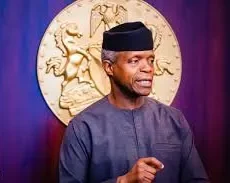
Debt Forgiveness: A Pathway to Economic Growth in Nigeria and Africa
Former Nigerian Vice President, Prof. Yemi Osinbajo, has advocated for increased debt forgiveness for African nations, emphasizing that the high cost of borrowing has led to substantial debt burdens across the continent.
He highlighted that many African countries, including Nigeria, are allocating significant portions of their budgets to debt servicing, which hampers their ability to invest in climate-friendly initiatives and sustainable development.
Osinbajo proposed a “Debt-for-Climate” (DFC) swap, where creditors would forgive portions of debt in exchange for commitments from debtor nations to invest in national climate action programs. This approach aims to increase fiscal space for climate-related investments while reducing the debt burden on developing countries.
He also called for reforms in the global financial system to facilitate more affordable lending to African nations.
Osinbajo noted that the current high borrowing costs contribute to escalating debt situations, leaving limited resources for essential investments in climate resilience and economic development.
Additionally, Osinbajo emphasized the need for African countries to develop stronger capital markets and financial institutions to support investments in renewable energy and climate-friendly projects.
He urged African leaders to present a unified stance in global discussions to influence policies that affect the continent’s economic and environmental future.
These remarks were made during the 23rd Chief S.L. Edu Memorial Lecture organized by the Nigerian Conservation Foundation (NCF), where Osinbajo spoke on the topic, “Greening Africa’s Economies: Can Climate Positive Growth Deliver Prosperity?”